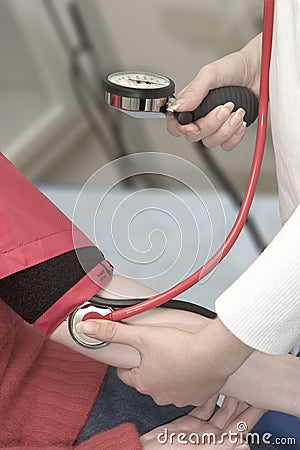We often think of nursing as giving meds on time, checking an X-ray to see if the doctor needs to be called, or taking an admission at 2:00 a.m. with a smile on our faces. Too often, we forget all the other things that make our job what it truly is: caring and having a desire to make a difference.
~Erin Pettengill, RN (Missionary serving in Haiti)
This is the end of Nurses' Week, and I want to complete my acknowledgment of my profession with a blog about the ordinary stuff nurses do. My previous blogs were about a few extreme examples of things I did, meant to show the experiences all nurses have when dealing with patients who are very, very human. Often the job of a nurse is so incredibly ordinary that we forget how much influence we have over the people we care for.
I remember caring for a labor patient one day shift long ago at the same small community hospital where I cared for Jordan and his mommy. I don't remember this patient's name, unfortunately. Or the sex of her baby. I do remember it was her second baby. Her first birth had been a good experience, but she had had this nagging regret that she'd been talked into an epidural anesthesia (for those who aren't familiar with this, it is a form of anesthesia that involves the placement of a very small catheter into the back and renders the laboring woman numb from about the waist or hips down.) She regretted that she had not fully participated in the delivery-- the physician had used forceps to help pull the baby out because she was too numb to push. The baby had been fine, and overall she had been thrilled. But she had this nagging feeling perhaps there was more to a natural birth than what she had experienced and wanted to give it a try.
The physician caring for her was ambivalent about it. They had discussed it, and the patient had tried to express her wishes. The physician had said he was fine with her doing whatever she wanted with anesthesia, but I knew from working with him that most of his patients had epidurals and he would encourage her to have one.
But, as a woman who had birthed two babies without an epidural, I knew it could be done with the right motivation and especially if the mom was not afraid. The key was lack of fear. To do that, she would need a lot of support. Her husband was very nice, but was unprepared for what a true natural birth would be like. It was my job as her nurse to support them both, but especially her in coping with the labor. And of course, there was the unknown factor-- how long would it take, would she have the dreaded "back labor" where all the pain is felt intensely in her back, how big was the baby, etc.
So, we started with a frank discussion of all the factors that could impact her labor, and what I could help her do for each one. I also reminded her that she could ask for an epidural at any point and we'd get one for her. That was the "back up" plan. I promised her I would wait for her to tell me she couldn't continue without it and that I would do everything I could think of to help her cope with whatever came along. She was excited and enthusiastic.
Supporting a patient in this kind of endeavor can be very time consuming. It cannot be done if the nurse has more patients to care for-- it requires that she remain at the bedside of the patient almost all the time. During the course of an hour of labor, the labor nurse must fit in at least 2 blood pressure and pulse readings as well as check the baby's heartbeat. The nurse is also assessing the labor by feeling how strong the contractions are, how close they are and at times examining the patient for progress. The nurse must give the physician progress reports any time the patient's status changes. And in between all of this she is rubbing the patient's back, helping get her in a comfortable position, helping her get up to the bathroom and sometimes helping her do the prescribed relaxation breathing techniques. It can be pretty intense work at times, but I loved it.
This patient I remember because she did very well. She used the breathing and relaxation techniques she had learned in her childbirth class and with her husband and me to support her, she found coping with the labor quite possible. Then transition hit. Transition is a very short period of time at the end of labor when there is very rapid progress towards delivery. It is usually accompanied by very intense, close together contractions that can be very difficult to cope with. Women who cope with labor up to this point often lose their focus and then their ability to cope with it all. Even minute distractions can cause the woman to lose focus-- so it is enormously important that those caring for her respect her need to focus and help her through it. Often the woman can feel an incredible urge to bear down when it isn't time yet to do so, and this especially can make the woman lose it.
When transition hit for this woman, having experienced it last time in the blissful state of anesthesia, she was unprepared for how intense it was. With every contraction she tried, but often ended crying and telling me "I can't do this!" Her poor husband looked frantic and scared. She had coped so well up to this point I hated to even suggest the epidural. So, I cupped her face in my hands and I said, "Don't be afraid! This is transition and it is making you a little crazy! It will be over soon! You can do this! I will help you!" Then, I made her look me in the eye and mimic my breathing. With each contraction we breathed together. I told her when every contraction was at it's peak and when it started to go away. When she started to panic I repeated my chant to her "You can do this! Breathe like me!"
It didn't take long - maybe 15 minutes - and she was ready to push. We called the physician to come for delivery. It was his much younger partner who showed up, and this doctor took me aside to ask why the patient had not had an epidural. I told him, "Because she didn't want one" and he shook his head disbelievingly. The patient, with her husband at her side helping her, pushed and delivered a beautiful baby. I don't remember the sex or how big, I just remember that the baby was delivered and we put it to her breast almost immediately.
And that is what I remember-- the almost Madonna-like mental image of this woman nursing her newborn with tears streaming down her face. "I did it!" she said softly. Dad snapped photos and grinned. "Great job, honey!" he said, and gave her a kiss. I got the room cleaned up for visitors. Eventually I took the baby and did all the normal newborn stuff-- weight, first baby shots, getting the footprints and putting the ID bands on. I took Mom's blood pressure and did all the nursing assessments required. Before the extended family came in to admire the new baby, I was able to congratulate the mother and father. "You did it!" I told them. And the mother told me, "I can't put it into words, but I feel like I could climb Mt. Everest right now... I feel as high as a kite! I DID IT!"

I am certain this patient thanked me at some point in our conversation. But it wasn't necessary. I was almost as thrilled as she was. I remember the incredible feeling of empowerment that came over me after each of my babies was born too. I think it is something all new moms feel, or should feel. Bringing new life into the world is an amazing feat, no matter how it occurs. For this mom, doing it without an epidural had been very important to her, and my job was to help her do that. That she had been successful felt very good to me, too.
Nurses do special things for their patients every day. We do our best to customize our care to what each patient needs. Often there are frustrating barriers to this-- too heavy a patient load, or not the right equipment or inadequate training are some of them. But we all want to care for our patients in ways that help them uniquely to cope or recover or remain healthy. When we get it right, the rewards of our patient's success is thanks enough.

So, here's to all the nurses out there who give so much of themselves every time they go to work. Who work long hours, often without bathroom breaks, and who work with smiles on their faces even when crisis hits at home, and who work all night long or Christmas day or when the weather is awful and school is closed for their kids... Who put up with patients who smell bad or talk bad or refuse to help themselves by following the prescribed plan of care, and families who panic and are too critical of everything or are rude or treat the nurse like hired help, and to physicians and coworkers who are having bad days or night and treat them rudely... whose spouses and families don't understand why they come home too tired to cook or help with homework or go out partying... and whose extended families don't understand how come they have to work on Christmas day... whose feet or knees or backs go out on them because of all the lifting and squatting and bending... and who can't imagine doing anything else for a living because they feel so needed and get more back from their work than they can put into words. God bless you!

Such a great tribute to all nurses! Thanks, Barb!
ReplyDelete